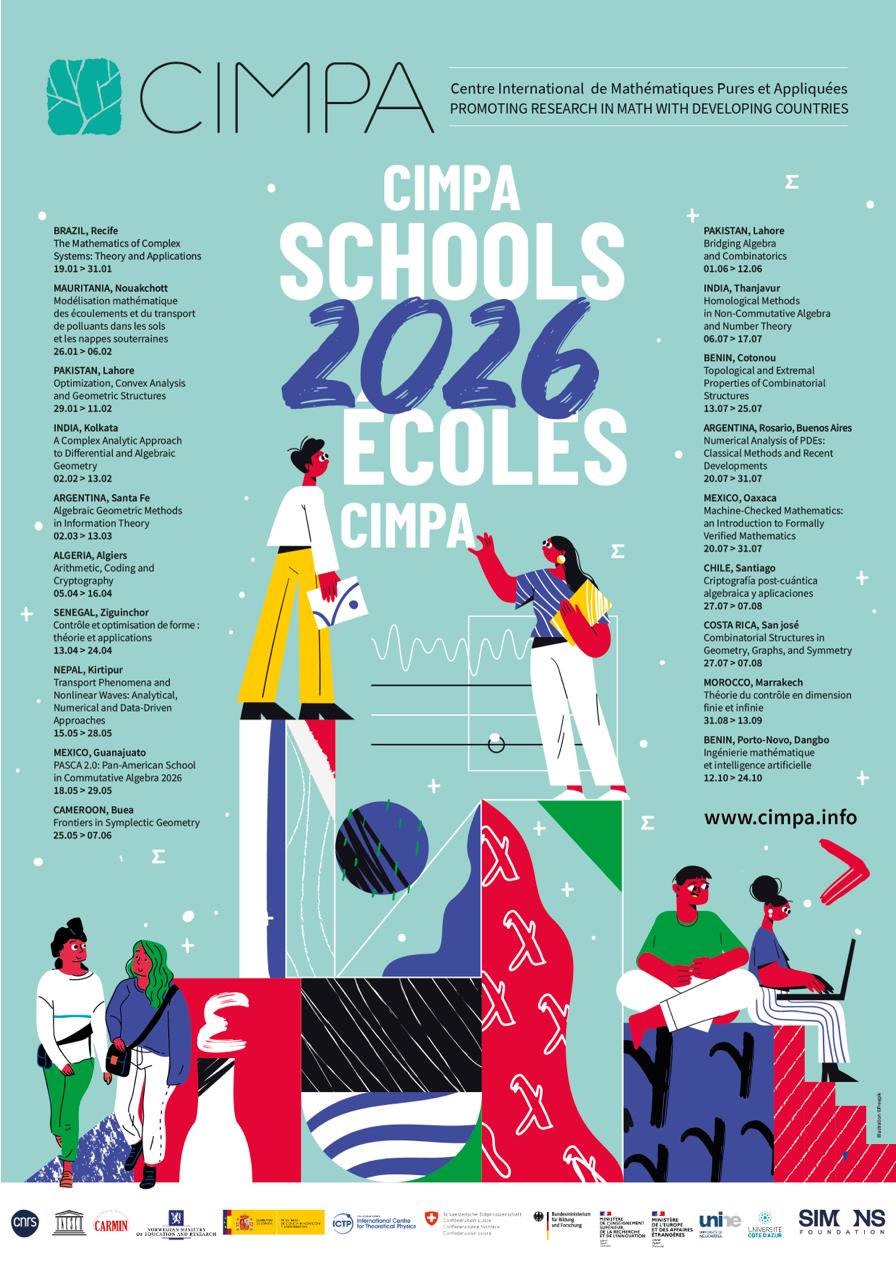Apollonian Circle Packings Summer School
Date: 23 - 27 June 2014
Location: Institut Mittag-Leffler
Event type: Research School
Organisers: Alina Bucur (UCSD), Pirita Paajanen (Sanger Institute), Lillian Pierce (Duke and Hausdorff Center)
An ancient theorem of Apollonius of Perga, circa 200BC, proves that for any three mutually tangent circles or lines there are precisely two other circles or lines which are tangent to all three. Thus given four mutually tangent circles, one of them internally tangent to the other three, there is a unique way to inscribe a circle into each of the curvilinear triangles that appear between the circles; iterating this procedure indefinitely gives a construction called an Apollonian circle packing.
One can study an Apollonian circle packing (ACP) from many different angles. Such packings are certainly of interest in classical geometry. But ACP’s encode fascinating information of an entirely different flavor: an infinite family of so-called integer ACP’s encodes beautiful and mysterious number theoretic properties. Many of these properties can be observed or conjectured experimentally, and the statements of conjectures or theorems in this area can be pleasingly simple. But these properties turn out to be fantastically difficult to prove. ACP’s are intimately related to questions on orbits of thin groups, and the summer school will adopt this modern point of view, which has led to recent breakthroughs by employing methods involving geometric group theory, equidistribution, expanders, and the affine sieve. Two wonderful references are the following survey articles written by the two lecturers: Counting problems in Apollonian packings by Elena Fuchs and Apollonian circle packings: dynamics and number theoryby Hee Oh.
The aim of the European Women in Mathematics summer school is to provide a stimulating intellectual environment for female and male PhD students and postdocs from different countries and different mathematical disciplines to learn new mathematics (outside the scope of their own research) and to meet new colleagues. We hope that these contacts will help the forming and development of a network for PhD students and between PhD students and established mathematicians.
CMI Enhancement and Partnership Program

